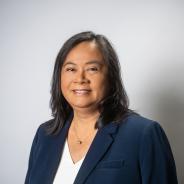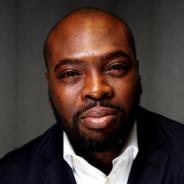Dec
6
SCG's 2023 Annual Conference - REIMAGINE Our Economy
Image

Dec 06, 2023
Speakers
Rachel Hernandez
Artist,
Bloco Obini
Years of sustained crisis showed us the inherent inequities in our economic systems and social institutions. While many entities — foundations, corporations, politicians — vowed to shift power, center equity, and never return to our traditional ways of operating, we have seen these commitments begin to wane. Our current systems continue exacerbating wealth inequality, widening social divisions, and worsening ecological destruction. But it’s not too late to move away from the exploitation and extraction inherent in traditional economic systems. Our sector can help reimagine a new economy that resources our communities, prioritizes relationships, and generates collective wealth.
SCG’s Opening Plenary Session for our 2023 Annual Conference will outline the economic theories, coalitions, and policy agendas needed to create a just and sustainable economy. Our Opening Session will invite funders to fortify their commitments to being bold, building solidarity with our communities, and reimagining our economic and political structures.
Speakers
Chris Benner
Professor and Director,
UC Santa Cruz Institute for Social Transformation
Stephen Cheung
President & CEO,
Los Angeles Economic Development Corporation
Anne Price
President,
The Maven Collaborative
Addressing racial capitalism's long-standing presence in our institutions and its legacies of harm can seem daunting and insurmountable. From bridging the wealth gap across race, gender, and class to building an economy that works for all, the goals we set for ourselves can often feel just aspirational and admirable. However, are we bringing the right mindsets and wealth distribution tools to address systemic issues? Have we done enough to center equity and share power in our work to ensure communities build prosperity? Join us for Rodney Foxworth's Ignite Talk to explore whether we are on track to create a reparative economy.
Speakers
Rodney Foxworth
Co-Founder,
Worthmore
Artists are workers. And yet, those working in the arts and culture sector are not always considered essential to our economy's labor force. Artists today are actively challenging "business-as-usual" economics and forwarding new models that value, compensate, and recognize this sector's importance in our economy. Join Art.coop artists and culture organizers, Marina Lopez and Clara Takarabe, for a world-building Ignite Talk where we will collectively imagine an economy rooted in creativity, safety, regenerative wealth, and community power.
Speakers
Marina Lopez
Artist and Cultural Organizer,
Art.coop
Clara Takarabe
Co-Director and Researcher,
Northwestern Music and Medicine
California is the fifth-largest economy globally, yet more than a quarter of the state’s population lives in or near poverty. Our communities are struggling with low wages, having multiple jobs, wage theft, and the inability to save for essential resources. Undoubtedly, our economy is not working for everyone. What would it take to build an economy that values the contributions of our communities and provides them with the tools, resources, and power to thrive? Join this Ignite Talk led by Joseph Tomás McKellar to hear what is possible when we resource our communities and build an economy of belonging.
Speakers
Joseph Tomás Mckellar
Executive Director,
PICO California
Enjoy catching up with colleagues over an unstructured lunch or join a networking table hosted by SCG's members and partners:
Child & Family Well-Being Funders Collaborative
Emerging Practitioners in Philanthropy (EPIP)
Foundation Aging Network
Impact Investing
Los Angeles Arts Funders
New SCG Members/First Time Attendees
SCG Education Funders Group
SCG Environmental Funders Group
SCG Health Funders Group
SCG Public Policy
SCG Workforce Funders Group
Speakers
Speakers
Maya Jupiter
Artist,
Artivist Entertainment
Traditional economic thinking leads us to believe that individualism, competition, and profit are the main drivers of economic progress. It also teaches us to believe our current economic system is both best and unchangeable. But our economy isn’t inherent or fixed — it is a collective agreement that we can influence and make beneficial for everyone. Our 2023 Annual Conference will culminate in a discussion of philanthropy’s role in building a solidarity economy — an economic system rooted in interdependence, repair, and collective prosperity. Our Closing Plenary Session will help us imagine how our economic institutions can prioritize the financial well-being of our communities. Our speakers will provide tangible takeaways for private, public, and social funders to enact new economic practices that center equity and mutuality and highlight existing examples of solidarity economy practices in the care economy, workers’ movement, community mobilization efforts, and more.
Speakers
Fatima Angeles
Executive Director,
Levi Strauss Foundation
Chet Hewitt
President and CEO,
Sierra Health Foundation
Sandy Ho
Program Director of the Disability Inclusion Fund,
Borealis Philanthropy
Manuel Pastor
Director,
USC Equity Research Institute
Our economy impacts almost every aspect of our lives — the quality of our schools, healthcare, employment, and ultimately our community’s ability to thrive. Today, families in Southern California are experiencing growing economic pressures as the cost of housing, food, and energy continue to increase, contributing to the widening of wealth inequality. But our economy is not a natural or arbitrary force — it is the direct result of decisions made by people in positions of power. For our communities to achieve prosperity, we must build an economy that works in service of people. We must reimagine our economic systems to allow communities to shape and control their futures. Join us to learn how philanthropy can help transform our economic rules to allow for the equitable distribution of resources and opportunity and help create sustainable and healthy communities.
Speakers
Natalie Foster
President,
Economic Security Project
Autumn McDonald
Senior Fellow & Head of New America CA,
New America
Joseph Tomás Mckellar
Executive Director,
PICO California
Andre Oliver
Initiative Director
The James Irvine Foundation
Michael Russo
Vice President of Policy and Programs,
Catalyst California
Sixty-one million adults in the United States have a disability, and one billion do globally. It is vital to recognize that every issue area our sector works in impacts disabled people. Join this breakout session to explore how disability intersects with our economy and other urgent issues, including immigration, housing and homelessness, employment, education, and more. Panelists will share personal stories that led them to this work, and attendees will leave with resources to start or deepen their commitments to disability inclusion.

Speakers
Nikki Brown-Booker
Program Officer Disability Inclusion Fund,
Borealis Philanthropy
Andraéa LaVant
Founder and President,
LaVant Consulting Inc
Sara L. Montrose
Senior Program Officer,
Weingart Foundation

Dr. Rosemary Veniegas
Director of Health Programs,
California Community Foundation
On June 29, 2023, the California Task Force to Study and Develop Reparation Proposals for African Americans issued its final report to the Legislature. The final report surveys the ongoing and compounding harms experienced by Black Californians as a result of slavery and its lingering effects on American society while also proposing a comprehensive reparations plan to repair those harms. However, the realization of this plan will only happen through sustained efforts centered on organizing, narrative change, legal action and defense, and philanthropic efforts. This panel will feature leaders discussing this new stage in the fight for reparations and what it will take for California to become a leader in the fight for racial, social, and economic justice.

Speakers
Charles Sidney Fields
Vice President of Program Implementation,
The James Irvine Foundation
Lisa Holder
President,
Equal Justice Society

Marc Philpart
Executive Director, California Black Freedom Fund,
Silicon Valley Community Foundation
Grantmakers needn’t look far to find concrete examples of community-based organizations shifting the paradigm from competition to collaboration. Right here in SoCal, three new coalitions led by artists and creatives are actively building alternatives to business-as-usual by centering solidarity economics in their operations. Grantmakers have a vital role to play in supporting these and similar efforts to develop new economic models that promote self-determination, sustainability, and systems change. Join this intimate conversation with these three creative coalitions and the funders supporting them as they build collective equity, fundraising, and worker wellbeing.
Speakers
Jacqueline Chun
Associate Director,
Center for Strategic Partnerships
Anne Ellegood
Good Works Executive Director,
Institute of Contemporary Art, Los Angeles
William Ing
Program Manager,
The California Endowment
Liana Krupp
President,
Krupp Family Foundation
Jon Rivera
Artistic Director,
Playwrights' Arena
Mike de la Rocha
CEO & Co-Founder,
Revolve Impact
Kristin Sakoda
Director, Department of Arts and Culture,
LA County Department of Arts and Culture
Not only is philanthropy a direct product of wealth inequality, but—indirectly or not—it is also a beneficiary of an environment that perpetuates privilege, white supremacy, and entrenched power. Join this provocative conversation to grapple with the inherent tensions of leveraging impact investing to pursue racial equity and explore actionable ways to repair the harms of racial capitalism. With a myriad of lessons learned from movements and communities, our sector has the opportunity to center racial equity and employ creative investing strategies to create pathways towards a reparative economy.
Speakers
Shawn Escoffery
Chief Executive Officer,
Roy and Patricia Disney Family Foundation
Rodney Foxworth
Co-Founder,
Worthmore
Bulbul Gupta
President & CEO,
Pacific Community Ventures
Vivienne Lee
Senior Advisor,
Common Future
While economic and workforce development leaders work to incorporate racial equity and economic justice principles into publicly-funded strategies, how can philanthropy support and build momentum for innovative workforce strategies developed by and for BIPOC workers? In this breakout session, we will hear from worker and immigrant-serving organizations that will highlight worker-owned cooperatives and government-community partnerships creating economic opportunities for low-income communities. These organizations will also outline how they integrate community organizing, policy and advocacy, and worker power-building strategies to create equitable access to quality jobs and workforce development opportunities. In addition, the UCLA Labor Center’s POWER in Workforce Development team will join us to share research on how today’s workers define job quality and the role of workforce development in creating high-quality jobs.
Speakers
Ana Luz Gonzalez-Vasquez
Project Director,
UCLA Labor Center
Gaby Hernandez
Executive Director,
ORALE: Organizing Rooted in Abolition Liberation and Empowerment
Yungsuhn Park
Senior Program Officer,
The James Irvine Foundation
Flor Rodriguez
Executive Director,
CLEAN Carwash Worker Center
Nosakhere Thomas
Executive Director,
Inland Empire Black Worker Center
In June 2023, United Ways of California released, How Much it Costs to Struggle: The Real Cost Measure in California, a new study providing a more accurate and comprehensive assessment of economic hardship in California beyond the official poverty measure. This report reveals the "real cost" of living in California by outlining the various costs burdening working households, including housing, food, health care, child care, transportation, and other basic needs. This session will provide an overview of the report's key findings and elevate strategies for philanthropy to impact and improve the economic reality of everyday Californians. Participants will hear from funders working across different industries and regions in Southern California on how they are advancing equity and economic justice in their communities by investing in affordable housing initiatives, advocating for livable wages, and building public-private partnerships to create long-term prosperity.
Speakers
Sarah Bowles Carter
Vice President, Global Philanthropy,
JPMorgan Chase
Henry Gascon
Director, Program & Policy Development,
United Ways of California
Eder Gaona-Macedo
Executive Director,
The Fund for Santa Barbara
Jan Masaoka
CEO,
California Association of Nonprofits (CalNonprofits)
Kimberly Starrs
President & CEO,
Inland SoCal United Way
If you wanted to shift culture and build an economy that puts people and the planet over profit—the Solidarity Economy—where would you start? With rest. Rest is a state of being that affords us the opportunity for integration, insight, empathy, and imagination. Without rest, the artful labor of worldmaking is not possible. Our body is an ecosystem within an ecosystem that needs tending to flourish. Join Art.coop artists and cultural organizers Clara Takarabe and Marina Lopez in guided movement, conversation, and artmaking. This session will also blend new and old technologies of rest and connection through Clinically Designed Improvisatory Music that signals to your brain that you’re safe. Participants are invited to go beyond imagination and feel how a liberated body can create a liberated economy.
Speakers
Marina Lopez
Artist and Cultural Organizer,
Art.coop
Clara Takarabe
Co-Director and Researcher,
Northwestern Music and Medicine